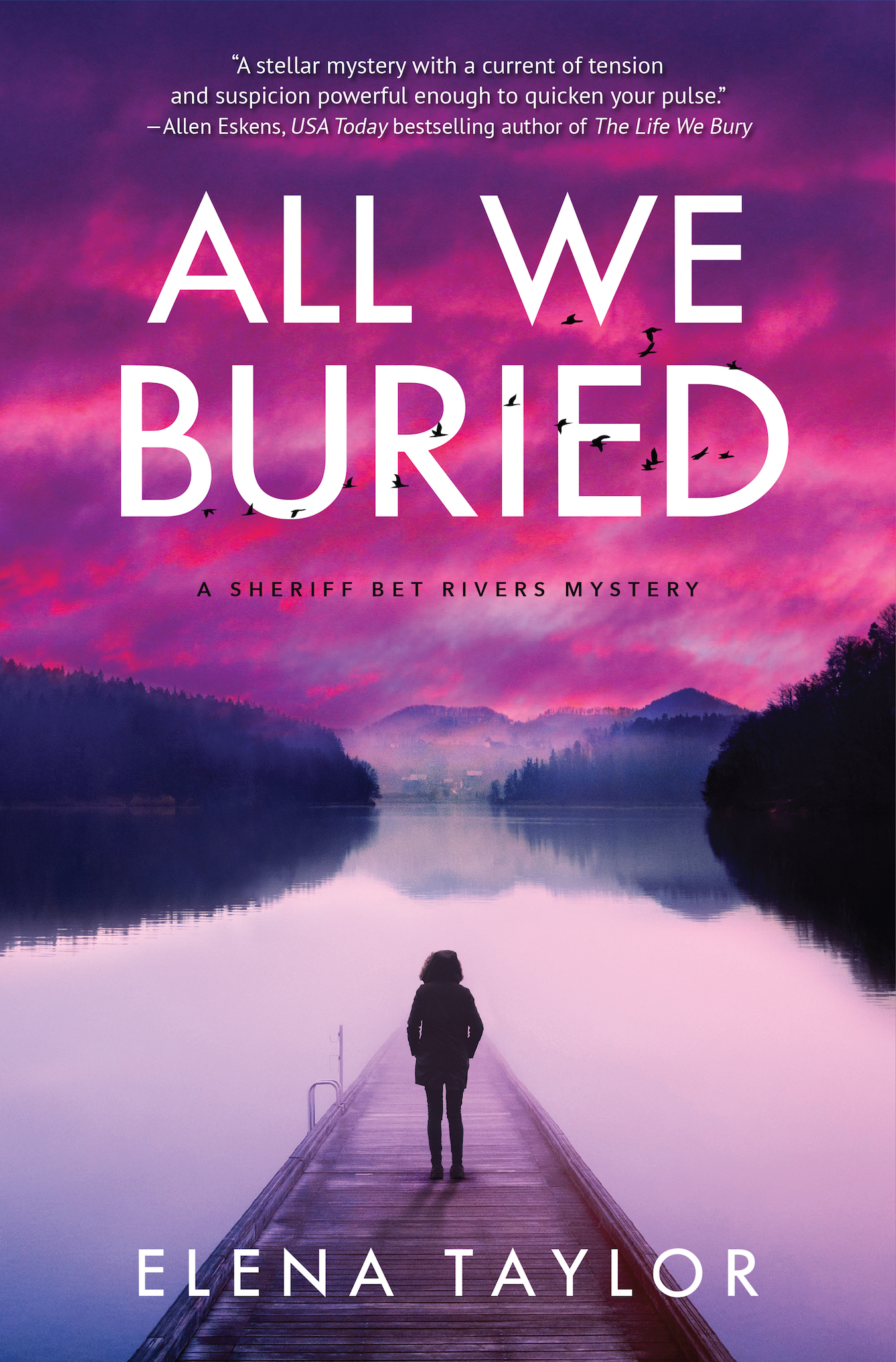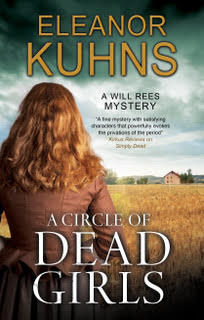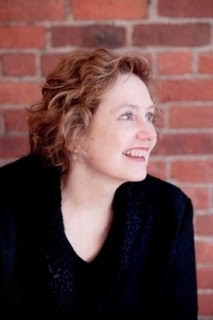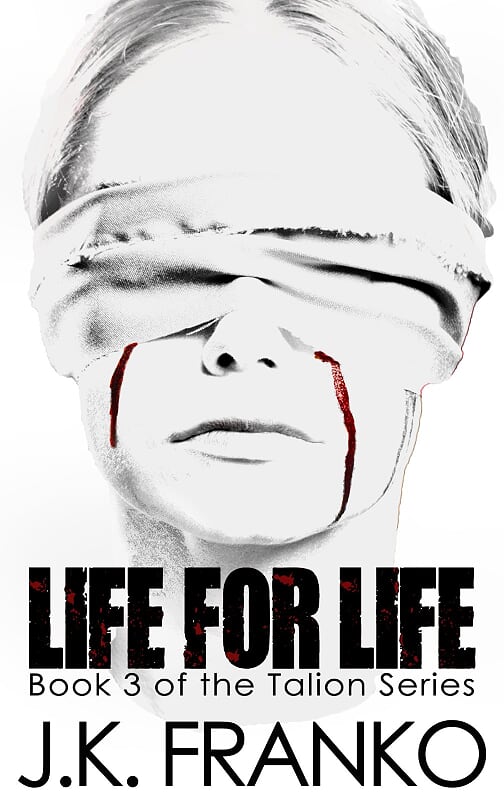In the spring of 1800, a traveling circus arrives in town. Rees is about to attend, but sees his nemesis, Magistrate Hanson in the crowd, and leaves. On the way home he meets a party of Shaker brothers searching for a missing girl. They quickly come across her lifeless body thrown into a farmer's field.
Rees begins investigating and quickly becomes entranced by the exotic circus performers, especially the beautiful young tightrope walker.
Other murders follow. Who is the killer? One of the circus performers? One of the townspeople? Or One of the Shakers?
Chapter 1
As if God Himself had taken a hand, winter abruptly changed to spring. The six inches of snow that had fallen just last week – the third week of April - was melting in the suddenly balmy air. Instead of hard packed snow, the roads were surfaced in slush and mud. Only on the north sides of the slopes and under the trees did snow remain and even there green spears poked through the white.
Rees had already planted peas and in a few weeks he would begin plowing the rocky fields. He sighed. Although glad to see the spring, he did not like to think about the coming backbreaking toil. He would turn forty this year and his dislike of farm work had, if anything, intensified. His father had died at the age of forty-six, while Rees was away serving with General Washington in the War for Independence, and sometimes he wondered if six years was all he had left. Six years with his arms up to their elbows in mud and manure. Just the thought of it pressed down like a heavy weight. He didn’t think he could bear it.
At least, with the coming warmer weather, he could look forward to a few weeks of freedom as he traveled these roads weaving for the farm wives. Besides the cash he would earn, he looked forward to what he imagined as sunlit days of freedom from the farm.
With a shake of his head, he pushed the gloomy thoughts from his mind. Now he was on his way into town. For the past several days men had been shouting up and down the lanes and byways: Asher’s Circus was coming to town. Rees had brought his children to the Surry road yesterday to watch the circus arrive. First came a man in a scarlet coat and top hat riding a bay. Bells jingled on his harness and feathers danced upon his head. Two carriages followed, the beautiful women seated inside leaning through the curtained windows to wave and blow kisses. At least five wagons followed, wagons that were unlike any that Rees had ever seen. These vehicles looked like the carriages but were bigger and taller and the curtains at their small windows were shut. On every wagon door a bright gold rearing horse glittered in the sunlight. Finally, clowns with colored patches painted over their eyes and vivid clothing walked alongside. One was a dwarf with a pig and a dog and the other a giant of a man. While the little man turned cartwheels, the big fellow walked straight ahead barely acknowledging the crowds lining the street.
Rees’s children were beyond excited, jumping and shouting beside the road. Even Rees, a cosmopolitan traveler who’d visited several large cities, had been enchanted. After a long winter kept mostly inside and occupied solely with mending tack and other chores he was ready for some entertainment.
Now he was on his way into town to see a performance. A sudden wash of muddy water splattered, not only the wagon, but him as well. He swore at the young sprig galloping by, so intent on reaching Durham that he paid no attention to those he passed. But Rees was not really angry. A circus was a grand event and he guessed he could extend a little charity to the eager farmer’s boy. Rees knew Lydia would have liked to join him, and probably the children as well, but no lady would be seen at such rude entertainment, so she must rely on his descriptions.
The streets of Durham were thronged with traffic. Wagons jostled for space next to horses and mules. Pedestrians were forced to cling to the side of the buildings lest they be trampled underfoot. Rees shook his head in amazement; he had never seen the streets so crowded.
And Rouge’s inn! The yard swarmed with horses and shouting men. Rees’s hope – that he could leave his horse and wagon there – died. When he turned down an alley that went to the jail, he found this narrow lane almost as impassible. But he could already see a tall structure in the field that the Durham farmers usually used for Saturday market. It was so early in the season that market was just beginning. Later in the spring the grounds would be in use every Saturday.
Finally, Rees parked his wagon and horse at the jail. He watered Hannibal from a nearby trough and joined the mob streaming toward the large field. Affluent townsmen rubbed shoulders with sunburned farmers in straw hats and dirty clogs. At first, except for the arena built in the center, the fairgrounds looked exactly as normal: an occasional ramshackle hut interspersed with large areas of open ground. The farmers usually set up their wares in one of those small squares; this was how Lydia sold her butter and cheese. Rees lifted his eyes to the tall wooden structure, dazzling with colorful flags flying around the roof, that dominated the field. At first, he did not notice how peculiar the building looked. But as he approached the flimsy construction, the lack of any windows, and the slapdash roof became apparent. An arc of roofed wooden vehicles – the circus wagons - curved around the back.
At several yards distant he could see gaps between the splintered boards that made up the walls. Posters, all designed with a crude woodcut of a horse, papered over the widest of cracks. Rees directed his steps to a bill posted on the wall and paused in front of it. "Asher's Circus", he read. "Mr. Joseph Asher, trained by Mr. Phillip Astley and Mr. John B. Ricketts, and just arrived from tours of London, Philadelphia, Boston, and Albany, is pleased to present daring feats of horsemanship, the world -famous rope dancer Bambola, clowns after the Italian fashion and many more acts to amaze and delight."
Rees grunted, his eyes moving to the bottom. Names and dates scribbled in by different hands, and then crossed off, filled all the white space with the last being Durham, show time five o'clock. Since he didn't recognize most of the names, he suspected they were for very small villages, not the cities mentioned above. Mr. Asher clearly had grandiose aspirations.
Rees walked around to the front. An opening was screened by a shabby blue curtain, dyed in streaks and with the same look as the boards- used over and over for a long time. Now more curious than ever, he bent down and peered through the gap at the bottom. He could hear the sound of hooves and as he peeked under the curtain he saw the skinny brown legs of a galloping horse thud past.
‘I really must begin my journey.’ Piggy Hanson's whiny drawl sent Rees's head whipping around. What the Hell was Piggy doing here? Rees had not seen Hanson, or anyone else from his hometown of Dugard, Maine, for almost two years, not since the magistrate had written an arrest warrants for Lydia - witchcraft - and for Rees - murder. His family had had to flee for their lives. He did not think he would ever forgive the people involved, especially the magistrate who had enabled the persecution. Rage swept over Rees and he turned to look around for the other man.
He saw his nemesis – they’d been enemies since boyhood - standing in a cluster of gentlemen, their cigar smoke forming a cloud around them. With every intention of punching the other man, Rees took a few steps in his direction, but then his anger succumbed to his more rational mind. He did not want Piggy Hanson to know he lived here now and anyway there were far too many men for him to take on by himself.
‘I must leave for the next town on my circuit, you know,’ Hanson continued. A magistrate for a large district, he regularly traveled from town to town ruling on judicial issues. He knew Rees was innocent of murder, Rees was certain of it, but he suspected he would still be treated as though he was guilty. And he doubted he could behave with any civility at all, not with this man. He cast around for a hiding place and, quicker than thought, he dashed behind the blue curtain.
He swiftly moved away from the portal, pressing himself against the wooden wall so that no one who came through the curtain could immediately see him. Then he inhaled a deep breath and looked around.
Stones carried in from the field outside marked off a roughly circular ring. The galloping horse thundered past, a woman in a short red frock standing on the saddle. At first scandalized to see the woman's legs knee to ankle, Rees's shock quickly turned to admiration. She stood on the saddle in comfort, her red dress and white petticoats fluttering in the breeze. Puffs of dust from the horse's hooves sifted into the air.
‘Pip,’ said a voice from above. Rees looked up. A rope had been stretched tautly across the width of the enclosure and a woman in a white dress and stockings stood upon it. She wore white gloves but no hat and her wavy dark hair curled around her face. Rees stared in amazement as her white feet slid across the line. She was totally focused upon her task and did not give any indication she saw him. ‘Pip,’ she said again, and went into a flood of French mixed with some other language. Rees understood enough to know she was complaining about the rope.
This, he thought, must be Bambola, the ropewalker, crossing the sky above his head. She was one of the most beautiful women he had ever seen. As her white dress fluttered around her, all he could think of was angels.
‘Bon.’ A man Rees had not noticed detached himself from the wall and moved forward. He was easily as tall as Rees, if not taller, and lanky. His hair was a peculiar reddish black color. In French he assured the rope dancer that he would fix the rope in a minute.
Holding up his hand, he moved toward the ring. The equestrienne dropped down to the saddle, first riding astride and then moving one leg across so she rode sidesaddle. She pulled the horse to a stop and jumped down with none of the hesitation of a lady. She conferred with Pip for a few moments in tones too low for Rees to hear and then she went out the opening at the back. The man leaped easily into the saddle and urged the horse again into a gallop. He stood in the saddle, balancing even more easily than his female partner, and then, in one fluid motion, dropped to the saddle to stand on his hands. His lean body formed a long streak toward the sky. Rees gasped in amazement. Then the performer began jumping from one face of the saddle to the other, riding diagonally on each side with his feet pointing at the horse's hindquarters. He was even more skilled than the woman and Rees was so enthralled he forgot why he was there and lost all track of time.
Finally, Pip moved his long body into the saddle and slowed the horse to a walk. He dismounted and, taking hold of the bridle, began to walk the animal around the ring. ‘You,’ he shouted at Rees in a heavy French accent, ‘get out. You must pay.’
Rees half-nodded, listening to the chatter floating over the wall; he could still hear Piggy talking outside, his high-pitched voice carrying over the lower tones of the other men. ‘I didn’t sneak in to see the show,’ Rees told the circus performer in a near-whisper. ‘There’s someone outside I don’t want to meet.’ With a grin – he could also hear Piggy – the other man turned and pointed to the curtain at the back. Rees struck across the ring for the screen. Disappointment – for now he would not be able to stay and enjoy the show – fell heavy upon his shoulders. Another crime to put at Piggy’s door.
Before he dropped the cloth over the opening Rees turned to look back over his shoulder. Now the tall man was scrambling up the pole to the small landing above. Rees wondered if the talented rider was a rope dancer as well as an equestrian but he did not go all the way up. Instead, as the girl withdrew to the landing on the other side, Pip began working with fittings. The rope vibrated.
Rees dropped the curtain and looked around. He found himself in the cluster of the circus carriages, horses, and hurrying people. A dwarf wearing a clown’s short ruffled red pants and with red triangles drawn in around his eyes hurried past, quickly followed by a slender fellow with oiled black hair and an aggressive black mustache streaked with gray. The performance would begin soon. No one took the slightest notice of Rees as he threaded his way through the circus performers.
Close to, the wagons looked beat up, scarred with use. Most of the gold horses on the wagon doors were simply paint and the few that were carved wood or sculpted metal were losing their gilding. Rees distinctly saw the tell- tale red of rust fringing the head of one rearing stallion.
He broke into a run. He would never have expected to meet the Magistrate here in this tiny Maine town. And he prayed Hanson would leave soon. Rees would not dare to return until he could be sure that Piggy Hanson was gone.
Leaving Durham proved just as challenging as entering town in the first place. The streets seemed even more congested now than they had been earlier. Abandoning the main road once again, Rees turned down a side street on the southern side of town. There was a narrow lane, little more than a footpath, that went east, from Durham to the Surry Road. He could follow Surry Road north past the Shaker community and then to his own farm. If he could just reach the lane. The side street was packed with wagons coming from the farms on the southern side of town. It took Rees much longer than it should have to drive the few blocks before he was finally able to turn.
But from what he could see of this winding track, there was little traffic here. Because of the narrow and twisty nature of this lane most of the traffic was on foot. Only a few vehicles were heading into town. Congratulating himself on his foresight, Rees settled himself more comfortably on the hard wooden seat. If one were not in a hurry, this was a pleasant ride through the stands of budding trees and lichen spotted boulders. He glanced at the sky; he’d reach home before it was entirely dark. And, although he had not been able to attend the circus, at least he’d seen enough to make a good story to tell Lydia and the children.
The wagon trundled around the last steep sharp curve. From here the road straightened out, cutting through farmland until it reached Surry Road.
And ahead was a group of Shaker Brothers, walking towards him. Rees was surprised to see them. A devout group that rarely left their well-ordered community, they surely could not be walking into Durham for the circus. He slowed to a stop and jumped to the ground.
Chapter 2
The group of men resolved into individual faces. One man, Brother Daniel, Rees knew well. Daniel had been the caretaker of the boys when Rees and his family had sought refuge here two years ago. Promoted to Elder since then, Daniel was beginning to look much older than his almost thirty years. He’d lost the roundness to his cheeks, his face now appearing almost gaunt, and the gray appearing in his hair made him look as though he were fading like a piece of old cloth. Rees, who’d recently discovered white hairs on his chin and chest, felt a spasm of sympathy.
Now worried lines furrowed Daniel’s forehead. ‘Rees,’ he said. ‘If I may request your assistance?’
‘Of course,’ he said immediately. ‘What do you need?’ Not only was his wife a former Shaker but the members of Zion had helped him more times than he could count.
‘When you came through town did you see a Shaker lass?’ Daniel's normally quiet voice trembled with fear and desperation. Rees shook his head. He had seen few women or children and none clothed in the sober Shaker garb.
‘What happened? Did she run off to see the circus?’
‘Yes,’ Daniel said with a nod. ‘With one of the boys.’
‘Shem,’ said Brother Aaron. Rees knew the cantankerous old man well. and was surprised to see him here, searching for the girl. Although a Shaker, Aaron was not always kind or compassionate. ‘I fear he was easily led by that girl,’ he added, confirming Rees’s judgement.
‘Apparently they took off right after our noon dinner,’ Daniel continued, ignoring the other man. ‘We wouldn’t know that much but for the fact Shem was almost late for supper.’
‘Well, have you asked him where she is?’
‘Shem had nothing to do with it,’ Aaron said sharply at the same instant Daniel spoke.
‘Of course we did. We aren’t fools.’
Rees held up his hands in contrition. The Shakers were usually the most even-tempered of people. He knew Daniel’s testiness was a measure of his worry. ‘What did he say?’
‘That they were separated.’
‘Shem wanted to see the circus horses,’ Aaron said.
‘Leah wanted to come home,’ Daniel explained, throwing an irritated glance at his fellow Shaker. ‘Well, they wouldn’t allow a woman to enter such a rude entertainment, would they? She was probably bored-.’
‘He is horse mad,’ Aaron interjected.
‘Please Aaron,’ Daniel said in a sharp voice, staring at his fellow in exasperation. Aaron
acknowledged the rebuke with a nod and Daniel continued. ‘How could Leah have been so lost to all propriety as to imagine she would be allowed entry, I don’t know.’ For a moment his frustration with the girl overshadowed his fear. ‘What was she thinking? I’m not surprised that rapscallion Shem would behave so carelessly but Leah is soon to sign the Covenant and join us as a fully adult member. The amusements of the World should hold no attraction for her.’
Rees shook his head in disagreement. He didn’t blame the girl. He thought that this was exactly the time when she would want to see something outside the kitchen. After all, he was a man, well used to traveling, and seeing the circus had made him long to pack his loom in his wagon and go.
‘Like all women, she is flighty,’ Aaron said, frowning in condemnation. ‘Attracted to sins of -.’
‘Did you search Zion?’ Rees interrupted.
‘No,’ Daniel said. ‘When we couldn’t find the children, we suspected they’d left . . .’ His voice trailed away and he looked from side to side as though expecting the girl to spring up beside him.
‘Perhaps she just wanted to go home to her family,’ Rees suggested.
‘She has no family,’ Daniel said curtly. ‘Neither of those children do. Shem is an orphan and Leah has lived with us since she was a baby. Her mother brought her to us and died soon after. Leah knows no other family but us. She would not leave our community.’
All the more reason for her to want to experience something of the world, Rees thought but he kept his opinion to himself. ‘I drove to town on the main road,’ he said aloud. ‘I did not see any children at all.’
‘When was that?”
“About four,’ Rees replied.
Daniel nodded and rubbed a shaking hand over his jaw. ‘You were on the road too late, I think. The children left the village right after noon dinner.’
‘That means they would have been on the main road between one and two,’ Rees said. ‘Depending on their speed.’ And if Leah had parted from Shem and started home by two-thirty or three, walking either road, she would have reached Zion by four. Four-thirty at the latest. Anxiety for the girl tingled through him. He thought of his own children and the kidnapping of his daughter last winter with a shudder of remembered terror. ‘I’ll help you search,’ he said. ‘The more of us the better.’ He already feared this search would not have a good outcome.
Daniel turned to two of the younger Brothers. ‘Search along the road,’ he said. ‘And
hurry. We have less than an hour of daylight left.’ They started down the lane, moving toward town at a run.
Rees looked up at the sky. The fiery ball was almost at the horizon, and long low rays streamed across the earth in ribbons of gold. In thirty – maybe forty minutes the sun would drop below the western hill and the pink and purple streamers across the sky would fade into black. ‘I’ll park the wagon,’ he said, jumping into the seat.
He pulled it to the ditch on the left side and jumped down, looking around him as he did so. Farmer Reynard had planted the sloping fields on Rees’s right; buckwheat probably given the sloping and rocky nature of the ground. But on the left the buckwheat straw from last year stood almost four feet high, waiting to be cut down and then turned over into the soil. Rees inspected that field thoughtfully. Tall thick stems such as that could hide a girl who did not want to be found. ‘We should check the fields,’ he said as he rejoined the Shakers. ‘And the pastures.’ When Daniel looked at him in surprise, he added, ‘She might have started back to Zion and when she saw us coming gone to ground. She might not want to be dragged back to Zion in disgrace.’ Daniel nodded, pleased by the suggestion and quickly asked the other Brothers to spread out across the fields. Rees and Daniel started walking down the lane.
But before they had gone very far, one of the other Shakers called out.
‘Hey, over here.’ A young fellow whose yellow hair stuck out around his straw hat like straw itself, began retching. ‘Oh, dear God.’
Daniel did not pause to remonstrate with the boy for his language but vaulted the fence into the field and ran. Rees struggled to keep up. Was it Leah? Was she hurt? His stomach clenched; he was so afraid the situation was far worse than that.
They arrived at the body lying sprawled in its buckwheat nest at the same time. She lay partly on her right side, partly on her back, her left arm crooked at her waist at an odd angle. Her plain gray skirt was rucked up to her thighs and blood spattered the white flesh. Daniel turned around, his face white, and shouted at the Brothers approaching him, ‘Stay back. Stay back. Don’t come any closer.’
‘Oh no,’ Rees said, dropping to one knee. ‘Oh no.’ Although he’d been told Leah was fourteen, she looked much younger. Under the severe Shaker cap, her skin had the translucent quality of the child. Her eyes were open, the cloudy irises staring at the darkening sky. Rees bent over her. Although it was hard to tell in the fading light he thought he saw marks around her throat. ‘She may have been strangled,’ he said, his eyes rising to the worm fence that separated this field from the road that led into Durham. Leah’s body had been dropped only a few yards from the fence but in the high straw it would have been almost invisible, even in daylight. Rees began walking slowly toward the main road, his eyes fixed upon the ground. There did not seem to be any path from the fence to the body; none of the buckwheat stalks were bent or broken in any way. He did not see any footprints in the soft April soil either. But in the setting sun detail was difficult to see and he made a mental note to examine this section of the field more closely tomorrow.
‘The farmer, did he do this terrible thing?’ Daniel cried, glancing from side to side.
‘Perhaps, but I doubt it,’ Rees said. He touched the girl’s upraised arm to see if he could move it. As he suspected, the body was growing stiff. ‘He would be a fool to leave her in his own field.’
‘It was not Shem,’ Aaron said loudly. Rees glanced up at the man. Why was Aaron so protective of that boy?
‘She’s been dead for about some hours,’ Rees said, returning to his examination. Then he thought about the warmth of the day. Leah would have been lying here, in the sun. ‘Maybe since mid-afternoon.’ And that time would be consistent with the time she’d left town.
‘How do you know?’ Daniel stared at Rees in shock, mixed with dawning suspicion.
‘You told me she was seen at noon dinner,’ Rees replied, ‘so we know she was alive then.’ He rose to his feet and looked at Daniel ‘It must be almost six o’clock now.’
‘Probably after,’ Daniel said, looking around at the fading light.
‘A body begins to stiffen a few hours after death and then, maybe half a day later, the rigidity passes off. I saw this frequently during the War for Independence but any good butcher will tell you the same.’ Rees kept his eyes upon the other man who finally nodded with some reluctance. ‘I would guess that Leah was accosted by someone on her way home.’ He paused. The poor child had probably been lying here when he rode past, thinking of the circus. He closed his eyes as a spasm of shame went through him.
‘She knew she was not to leave Zion,’ Daniel said with a hint of wrath in his voice.
Rees sighed. This was not the first time he had seen the victim blamed. And perhaps, for a celibate such as Daniel, anger was an easier emotion right now than horror and disgust and grief as well. ‘Perhaps she behaved foolishly, but she did not deserve this end to her life.’
‘We will take her home -,’ Daniel began. But Rees interrupted.
‘We must send someone for the constable.’
‘No. No. She is one of ours.’
‘This is murder,’ Rees said, staring fixedly at Daniel. Although shocked and horrified, he had witnessed too many violent deaths to be paralyzed by such evil any longer. His calm voice and stern regard had the desired effect. Daniel sucked in a deep breath. After he had mastered himself, he left Rees’s side and joined the group of Shakers.
‘Run back to the village and get a horse,’ he told one of the youngest Brothers. ‘Ride into Durham and fetch Constable Rouge.’ His voice trembled on the final word. Rees looked at Daniel. He was swaying on his feet, his eyes were glassy and his skin pale and slick with perspiration. He looked as though he might faint. Rees drew him away from Leah’s body and pressed him down into a sitting position. Daniel was little more than a boy himself and had lived in the serene Shaker community most of his life. It was no surprise he was ill-equipped to handle such a terrible occurrence. ‘Put your head between your knees,’ Rees said. ‘I’m going to walk to the farmhouse and talk to the farmer. Maybe he saw something.’
‘I’ll go with you.’ Daniel stood up; so unsteady Rees grabbed him to keep him from falling.
‘No,’ he said with a shake of his head.
‘I need to go with you,’ the Brother said fiercely. ‘I need to do something. That poor child!’ Rees stared at the other man. Although Daniel’s face was still white, and he was trembling he had set his mouth in a determined line. ‘I must do this, Rees.’
‘Very well.’ Rees glanced over his shoulder at the body. From here, it appeared to be a bundle of rags dropped among the stalks. ‘Poor chick won’t be going anywhere.’
Daniel looked at Brother Aaron. ‘You were once a soldier,’ he said. ‘You’ve seen violence and death. Please stay with our Sister.’ Aaron nodded and, withdrawing a few steps, sat down in the row between the stalks. In the encroaching shadows he instantly faded from view. Only his pale straw hat remained, shining in the last of the light like a beacon.
Rees and Daniel set off across the fields for the distant farmhouse.
***
Excerpt from A Circle Of Dead Girls by Eleanor Kuhns. Copyright 2020 by Eleanor Kuhns. Reproduced with permission from Eleanor Kuhns. All rights reserved.
Eleanor Kuhns is the 2011 winner of the Minotaur First Crime novel competition for A Simple Murder. She lives in upstate New York. A Circle of Dead Girls is Will Rees Mystery # 8.
Visit these other great hosts on this tour for more great reviews, interviews, guest posts, and giveaways!
My Take: This is the 8th book in this series but the first one I have read. This series follows a man named Will Rees who was falsely accused of murder and he and his family moved to a Shaker community near the town of Durham. This is a farming community and Will hates farming, he is a traveling weaver by trade. A circus comes to town and Will goes to see it. On his way home he meets up with some Shaker men who are looking for a a teenager named Leah. They soon find her beaten and her lifeless body is thrown into a nearby field. He starts to follow leads but he is distracted by the circus. There are some twists and turns and this book kept me interested till the end. I would suggest reading from the beginning of the series. I found the histoircal aspect of the book interesting from both the Shakers to the circus.
I received a review copy of this book from Partners in Crime Tours and was not required to write a positive review.






















